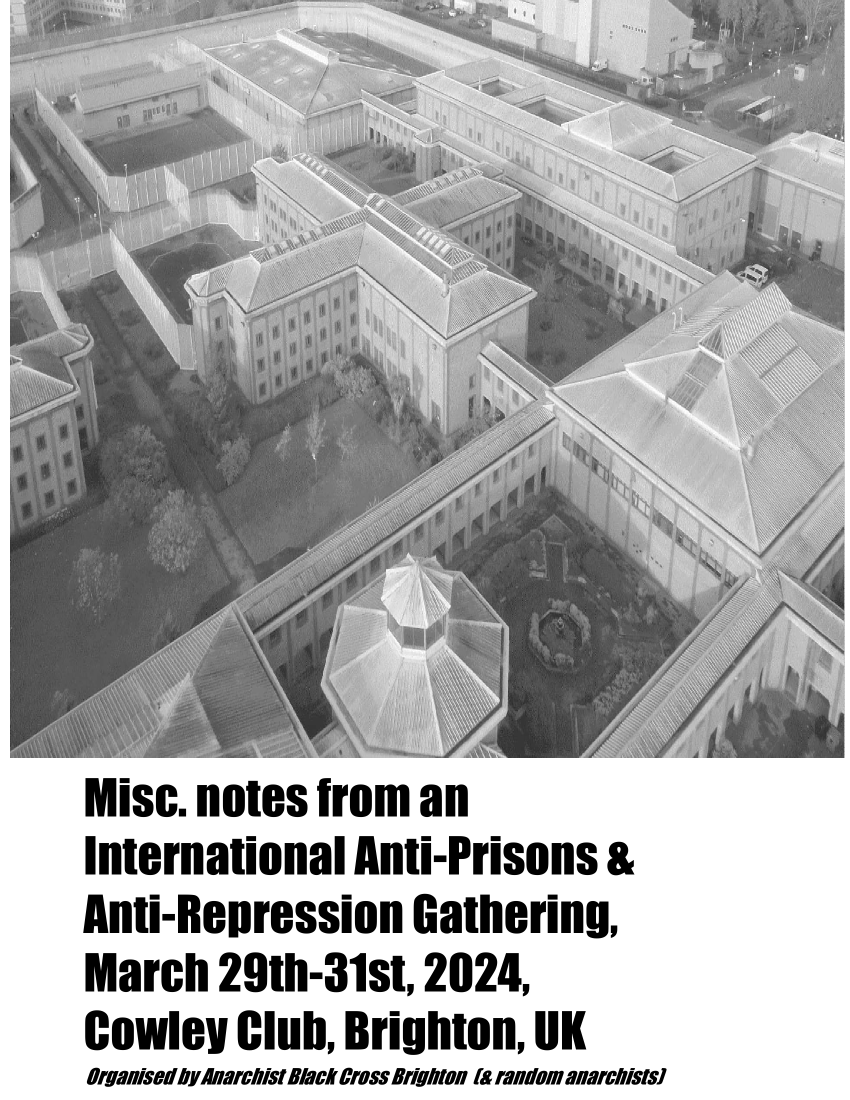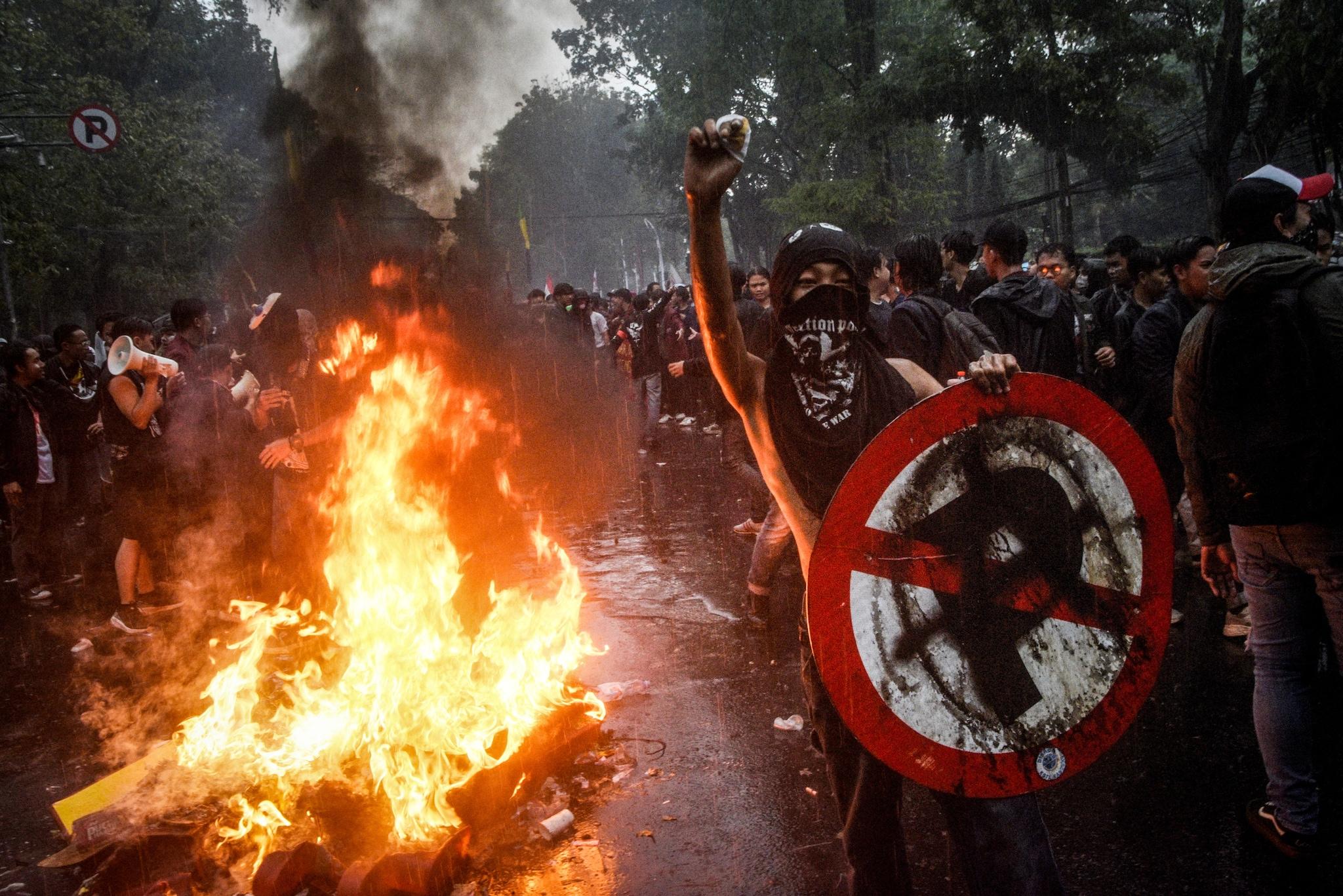On 31.10 on the third floor of an apartment in Arkadias Street (Athens), during the processing of explosives by my comrade and guerrilla Kyriakos Xymitiris, an explosion took place with the tragic consequence of his death. For a few moments, with me in the next room, time froze, everything went black and I was unable to move. The condition was incomprehensible, the development inconceivable. Buried in the wreckage trying to figure out what had happened;asking for help, searching for my partner with my eyes. Slowly realizing that while the thread of my comrade’s action would be abruptly cut short, his life and his choices in struggle would be a historic flash of determined resistance, consistency and dedication; a springboard and inspiration for further struggle. Two figures appeared offering help while I showed them the spot where I last saw my comrade, the spot where our guilty gazes met, gazes full of anger at the world we live in, full of faith and appetite for moments of true freedom.
Within a few minutes I was in the hospital “Evangelismos”. I was immediately subjected to examinations and operations. I had a hematoma on my head and countless stitches on the upper part of my body. I remained intubated and completely unconscious for the next three days. Enough time for the “anti-“terror scumbags to come to the hospital demanding a blood sample. On the Monday, I regained consciousness and was transferred to the ICU where I was confined for the next three days. The conditions there were decent with medical staff eager to assist in my recovery. However the room was surrounded by police forces who entered the ICU room during the 5-minute visits from my family.
After two days I was transferred – for no apparent reason – to an isolation ward guarded by several static and as many mobile cops in the hallways and on the floors. The door to my room was constantly open leaving zero privacy even during medical examinations. Under the “watchful” gaze of every single cop I had to eat, be examined, and have my body cleaned. Following instructions, the majority of medical and nursing staff maintained a distant attitude, showing zero empathy even in the most basic things, for example when they carried out an examination with the presence of a male police officer.
The insistence of the 22nd investigator of the Athens District Court on conducting the interrogation procedure despite my physical and mental weakness also contributed to the vindictive atmosphere. After asking for a certificate of my sufficient ‘functionality’, which she read at her discretion, she finally gave me the sham extension of 30 hours. She thus confirmed the fact that her priority was my predetermined pre-trial detention and prosecution under 187A.
On Friday 15.11, and just one day after the second operation I underwent, I was transferred to the women’s prison in Korydallos. My daily life, under these circumstances, was difficult. Under deplorable sanitary conditions and with unhealed wounds on my body and head, the repressive mechanism was playing with my health. I was without the necessary medical care and without access to the necessary medication, a condition that all prisoners face as they are perceived as second-class citizens with no right to medical care, with superficial to non-existent medical examinations by prison doctors, with prohibition of necessary medical procedures, with discontinuation of medication taken before incarceration, with long waits for months for emergency examinations in outpatient hospitals.
THE GEOMETRY OF THE ANTI-TERROR UNIT
While I am still unconscious, only a few hours after the explosion, the judicial apparatus follows the instructions of the anti-terror squad and constructs an indictment of an abomination. The processing of (small amounts of) explosive materials and devices with only comrade Kyriakos and myself present and aware, was baptized an organization. The apartment, to which we had only had access to for a few days, was christened a yafka (illegal bunker). The legitimate objects found in the apartment where I lived with comrade Kyriakos and which were presented on the daily news were dubbed suspicious. With these facts, the anti-terror police prosecuted me on the charge of “terrorism”. At this point, however, I will not focus on the legal aspect, nor will I speak in the context of innocence and guilt. I refuse to accept an indictment based on 187A, especially when it instrumentalizes the death of my comrade in the most vulgar fashion. And I intend to deconstruct whichever repressive scenario they construct. But I will defend until the end my choice to be in this apartment, I will defend the necessity of struggle by means not limited to the framework of civil law, I will defend my comrade’s choices, his memory and our relationship.
By carving concentric circles, the anti-terror police weave their own repressive web. It places me and my comrade Kyriakos at the centre and, with shaky geometry, it adds friends, comrades and strangers. In the first cycle it places the arrest of the anarchist comrade Dimitra, who presented herself voluntarily in a Hollywood-style operation at the Athens airport where – in contrast to the femicide of Kyriaki Griva – the police car in the role of a taxi picks her up and takes her to the GADA (Athens central police station). The only “clue” was that she had given the keys to the apartment in Arkadia Street to me and Kyriakos under the pretext of hosting our acquaintances from abroad, without her knowledge of the true purpose of the flat’s use. It is worth noting that on the day of the explosion she was abroad, where she had been living for the last few years. She too is being prosecuted under 187A. In the second circle they place the comrade Dimitris, who also presented himself voluntarily at GADA, because he had handed over the pair of keys of the apartment in Arcadia Street to the flat’s owner, something which had been requested of him by Dimitra. With the only involvement being the delivery of the keys, without having known anything more and having been at work at the time of the explosion, he also faces the aforementioned charges. Twenty days later the”anti-“terrorists secure the next cycle, with the arrest of the anarchist comrade N. Romanos. In his case, the repressive mechanism unleashed its vindictiveness by using as proof a faint fingerprint on a transportable object – a bag – found in the apartment in Arcadia. Two days later A.K becomes part of the last cycle when he is arrested due to the ridiculous “clue” of the fingerprint on the same bag. Apparently within 20 days the “efficiency” of the ELAS (greek police) laboratories managed to implicate two people with whom I have no connection, by unearthing a fingerprint, while the tons of xylene in the Tempi massacre have not been found for two years now. The last two arrested also face the same flimsy charge.
Continue reading “Greece: ‘THAT WHICH GIVES MEANING TO LIFE GIVES MEANING TO DEATH’ – Marianna M. [Updated Translation]” →



